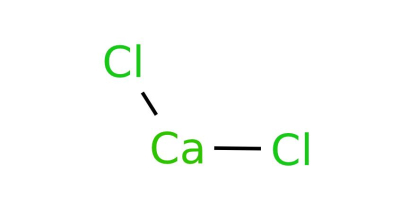Ammonium sulfate CAS#7783-20-2
High Nitrogen Efficiency–Contains 20–30% nitrogen, providing a stable and effective nutrient source to promote healthy crop growth and yield improvement.
Dual Nutrient Supply–Serves as both a nitrogen and sulfur fertilizer, enhancing protein synthesis and supporting balanced crop nutrition.
Sustainable By-product Production–Produced from industrial by-products such as coking and desulfurization processes, supporting waste utilization and energy conservation.
Stable Chemical Performance–Features good solubility and reliable chemical stability, ensuring consistent fertilizer effectiveness across various agricultural applications.
Product Description of Ammonium Sulfate (CAS#7783-20-2)
Ammonium sulfate is one of the earliest nitrogen fertilizers developed and widely used both domestically and internationally. It is considered a standard nitrogen fertilizer, typically containing 20%–30% nitrogen. As a salt formed from a strong acid and a weak base, its aqueous solution is mildly acidic. Among inorganic fertilizers, ammonium sulfate serves as both a nitrogen and acidic fertilizer. However, long-term continuous use may lead to soil acidification and compaction, which should be properly managed.
Ammonium sulfate cannot be used to produce organic fertilizers and should not be mixed with alkaline fertilizers, as double hydrolysis can reduce its effectiveness. In the 1960s, it was the primary nitrogen fertilizer and an important sulfur source for crops. Initially, it was produced by neutralizing ammonia with sulfuric acid, but over time, by-product ammonium sulfate became more common.
Today, most ammonium sulfate is derived as a by-product from various industries such as coking, caprolactam, sulfuric acid tail gas desulfurization, power plant desulfurization, acrylonitrile, methyl methacrylate, and zinc oxide production. This by-product approach follows the principle of “waste treatment with waste,” promoting resource recycling, energy conservation, and emission reduction. With ongoing advancements in ammonia-based desulfurization technology, the production of by-product ammonium sulfate from power plants is expected to grow substantially in the future.
Ammonium sulfate Chemical Properties
Melting point | >280 °C (dec.) (lit.) |
density | 1.77 g/mL at 25 °C (lit.) |
vapor pressure | <1 Pa (25 °C) |
refractive index | n20/D 1.396 |
Fp | 26 °C |
storage temp | room temp |
solubility | H2O: 1 M at 20 °C, clear, colorless |
form | Solid |
Specific Gravity | 1.769 |
color | Yellow to orange |
Odor | Slight odor of ammonia |
PH Range | 5 - 6 |
PH | 5.0-6.0 (25℃, 1M in H2O) |
Water Solubility | 77 g/100 mL (25 ºC) |
λmax | λ: 260 nm Amax: ≤0.037 |
Merck | 14,555 |
Stability | Stable. Contact with strong oxidizers may cause fire or explosion. Incompatible with strong bases. |
InChIKey | BFNBIHQBYMNNAN-UHFFFAOYSA-N |
LogP | -5.1 at 25℃ |
CAS DataBase Reference | 7783-20-2(CAS DataBase Reference) |
EPA Substance Registry System | Ammonium sulfate (7783-20-2) |
Safety Information
Hazard Codes | Xi,Xn |
Risk Statements | 10-36/37/38-22 |
Safety Statements | 37/39-26-36-24/25 |
WGK Germany | 1 |
RTECS | BS4500000 |
TSCA | Yes |
HS Code | 31022100 |
Hazardous Substances Data | 7783-20-2(Hazardous Substances Data) |
Toxicity | LD50 orally in Rabbit: 2840 mg/kg |
Product Application of Ammonium Sulfate (CAS#7783-20-2)
Ammonium sulfate is widely used in various fields such as biotechnology, pharmaceuticals, and industrial manufacturing. It serves as a key reagent in biological preparations, protein precipitation, chromatography, urine testing, and the preparation of culture media for haploid breeding.
In the pharmaceutical industry, it functions as a salting-out agent, a catalyst in food coloring, and a nutrient source for yeast cultivation during fresh yeast production. Additionally, it is used as an auxiliary agent for acid dyeing processes and as a deliming agent in leather treatment.
Ammonium sulfate also plays an important role in chemical manufacturing, particularly in the production of hydrogen peroxide and ammonium persulfate, as well as in electroplating and related industrial applications.















